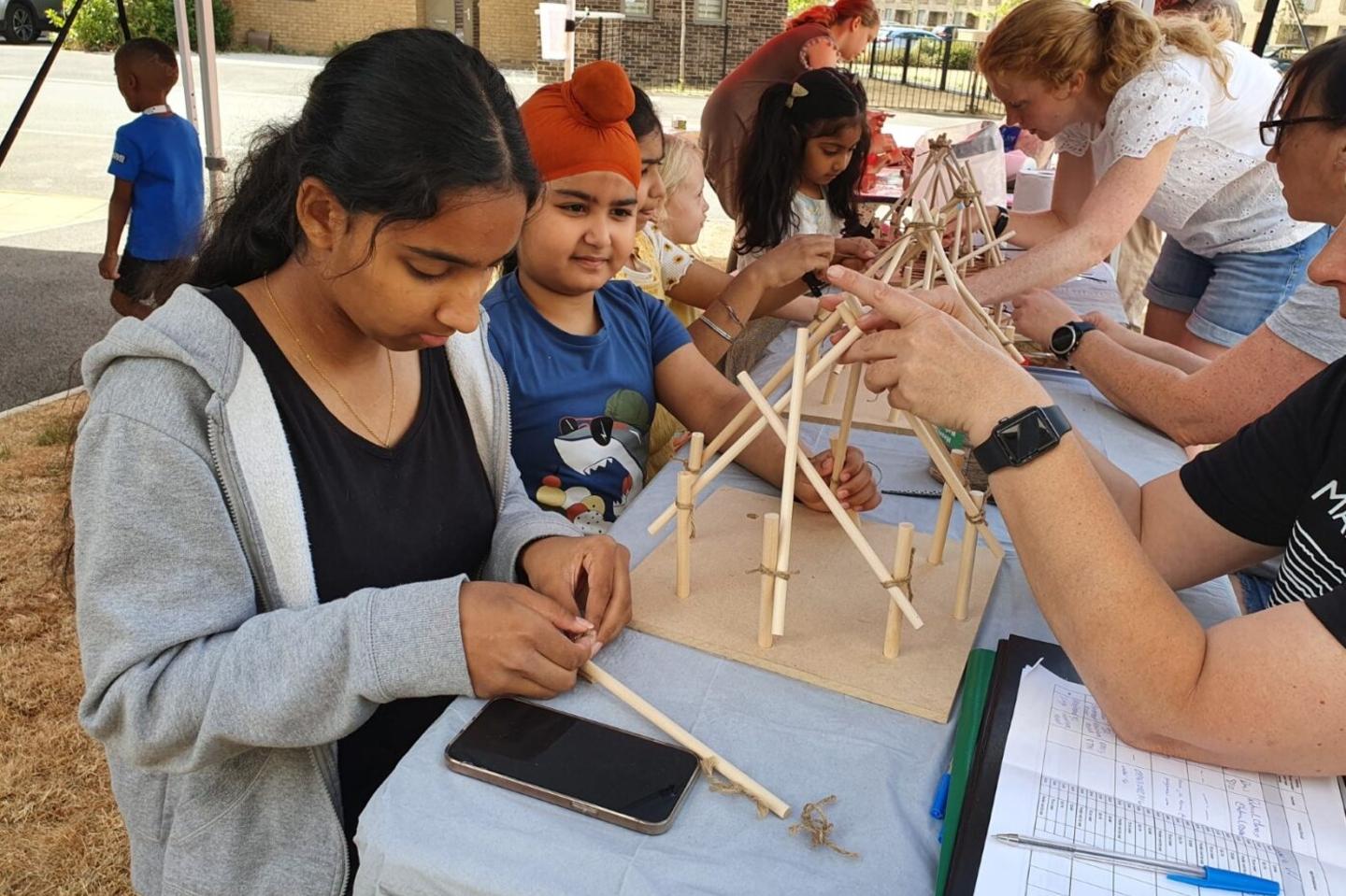Three ways the construction industry can increase its social value as the country begins to recover from COVID.
As we touched on last week, infrastructure is a key focus for the UK’s crisis recovery plan. As Boris Johnson’s key message, ‘build, build, build’ sets out on a “mission to unite and level up” our country post-COVID-19.
But this means increased pressure on the construction industry for kick-starting the economy and building our country back better than ever. With this comes increased scrutiny over their social impact and value. After all, as well as strengthening our economy and saving jobs, can’t ‘building back better’ also include reducing our negative impacts? Operating more sustainably and generating greater social value?
The iED described this succinctly: “There are huge opportunities and requirements for the public sector, industry, and government to step up to the plate, to make sure that every one of those construction pounds delivers additional tangible social impact, and makes a major contribution to our most disadvantaged citizens and left-behind communities as we plan our post-COVID-19 strategy.”
The construction industry has been given this great burst of momentum and responsibility to put our country back on track. But despite there already being legal requirements on construction businesses to report on their sustainability, social impact, and social value generation, it’s not as simple as it seems. There are some hurdles in the way of many construction companies that slow them down in achieving their best in terms of social value. Let’s look at what they are and how the industry can overcome them to make a difference.
Finding focus
One factor that doesn’t help is a lack of focus; a lack of a common standard, if you will. Construction companies might be able to glean advice from a body such as the Supply Chain Sustainability School, but it is by no means mandatory. For many, they have made a sizable difference. 37% have reduced carbon emissions and 51% have increased community engagement. But it’s still at the discretion of the individual business.
It doesn’t help that some construction organisations can find themselves stuck when local authorities insist on social value requirements that directly impact people living in the ‘local’ area rather than those with the greatest need. The term ‘local’ itself can be problematic, meaning different things in different situations. And in terms of social value, the greatest need will often be the more beneficial route to take for widespread, impactful change.
The Supply Chain Sustainability School’s Social Value in the Built Environment whitepaper breaks down the local vs greatest need topic well. It’s also suggested that a focus on localised social value poses a challenge to smaller businesses, who may not have the resources or local base needed to support such initiatives. Instead, these businesses may be providing social value to those in greater need elsewhere that goes unnoticed during procurement.
For smaller businesses who might be restricted by the resources at their disposal, it’s important to find other ways of showing the social value generation, outside of ‘local’ areas, that could secure them the additional 10% they need on a balanced scorecard. For example, making a materiality matrix helps to identify the causes that matter most to your staff, business, or local area, further informing your direction and enabling you to find focus in your efforts to build back better in more socially valuable and sustainable ways.
Reporting
Even if a construction firm has a framework that dictates their approach on a project, seeing it through is where it tends to fall apart. It is usually a legal requirement as part of the social value act to report on any social value generated in a project. It is also regularly a tendering requirement. But throughout the course of the project, it isn’t tracked. So while they may have set out with the greatest of intentions, the lack of a rigid reporting process means any social value they do generate is missed when it comes to measuring at the end of a project.
Given the sheer number of departments, suppliers, employees, and initiatives, we understand how information can be left behind. What is missing is something that looks at the whole lifecycle. Something that lets commissioners know which commitments have been made by ind other areas or ways of showing the SV they generate which partners and on which projects. A real-time solution allows construction firms and their supply chain to be responsible and accountable for the impact they have pledged to deliver. It would be good for them, good for commissioners, and good for everyone. Ideally, it would also be framework independent, so you can make your impact no matter what.
For SMEs, the difficult part can be knowing where to start. But by tying their construction projects towards specific social value initiatives, SMEs can work on their momentum with social value. It doesn’t have to be an all-at-once effort, either. It could start with employing more people from the local community at the start. Then you could add on a goal to use sustainable materials. And you can build on this initiative over time.
Whatever level your experience with social value generation is, there is one rule that applies to all: reporting should be a whole-of-project process. By measuring as you go, you can accurately report on what impact you have had, staying away from vague claims that can sometimes plague this industry.
Benchmarking
So with no true focus and a lack of reporting, it’s hard to build an accurate benchmark for progress in the industry. Sure, an individual business could report on their social value initiatives. But if they have no industry benchmark to compare it to, or a governing body to prove it to, there seems little point. How do they know what needs to be done to improve and meet industry standards when there are no set standards to meet?
If we want ‘innovative, replicable, and impactful social value’, we need ways to set cross-industry standards and keep businesses accountable.
In a way, it’s a vicious cycle. A lack of specificity makes reporting and benchmarking difficult. This can affect how and when companies try to change their social value generation. Businesses know they need to engage in some way, but don’t know how to tie this into their core business strategies. Or how to report on their value to develop an industry benchmark that can then be used to improve the whole industry’s commitment to social impact.
We need to work towards a more widespread understanding and commitment to social impact across the construction industry. Keeping businesses accountable, setting industry standards, and encouraging companies to commit to their initiatives and reporting in the long-term should be our goal if we want the industry to thrive in the way we all know it can.
With Impact, we help you to measure, monitor, and report your organisation’s non-financial data. By visualising your progress and tracking your real-world impacts, you can continue to generate more social value in line with long-term strategies and goals. To find out more, get in touch with us on 0161 532 4752.




